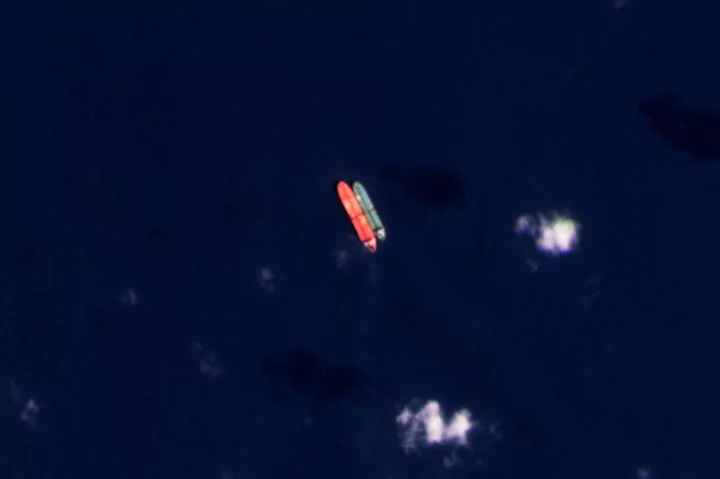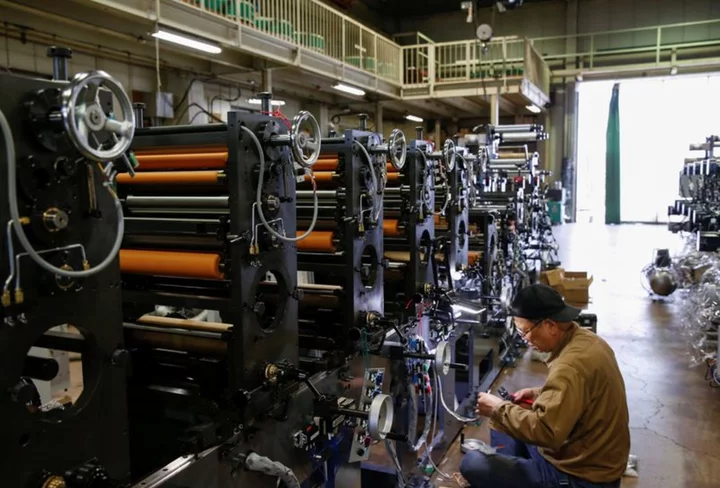New Zealand’s government is tightening its belt as a domestic recession and concerns about China’s faltering economy erode tax revenue and strain its budget.
The government has identified almost NZ$4 billion ($2.4 billion) of potential savings over the next four years, Finance Minister Grant Robertson said Monday in Wellington. He has instructed the public service to cut spending on consultants and contractors and said he will also reduce future budget allowances.
“We have seen further deterioration in the global economy, particularly in China,” Robertson said. “This will continue to have a direct impact on the New Zealand economy, and it is important that the government responds to meet our balanced and responsible fiscal goals.”
The ruling Labour Party is struggling in opinion polls less than seven weeks from a general election, as the economic downturn and soaring cost of living dent its support. Robertson and Prime Minister Chris Hipkins are bracing for the Treasury’s pre-election fiscal update on Sept. 12, which is tipped to show a slump in revenue and bigger deficits.
China’s economic slowdown has curbed demand for commodities such as meat and milk. Fonterra Cooperative Group, the world’s biggest dairy exporter, has slashed its projected payment to New Zealand suppliers twice this month by a combined 15%. For many farmers, this brings their income below break-even point, adding to signs of falling farm profits and reduced spending in rural communities.
Weak economic growth this year and next add to signs of falling tax revenue. The economy shrank in the final three months of 2022 and in the first quarter of 2023 as higher interest rates and rising prices stalled consumer spending. The Reserve Bank and several bank economists forecast a double-dip recession will start in the second half of 2023.
Return to Surplus
Robertson said the measures announced today will help ensure that net debt remains under 30% of GDP and that the budget returns to surplus “in the forecast period,” which extends to June 2027.
In the May budget, he projected a return to surplus in the year through June 2026. However, government accounts for the 11 months through May showed that tax revenue was more than NZ$2 billion behind where Treasury had forecast it to be at the budget.
“Nobody watching the world would think that things are getting better since those government accounts were forecast,” Robertson said.
He said big policy reforms are coming to an end, which is taking pressure off the public service and allows scope to reduce reliance on consultants and contractors.
“We are directing public agencies to cut back on spending on consultants and contractors to pre-Covid levels,” he said.
The government wants contractor and consultant spending to drop below 11% of public service workforce spending, which will save about NZ$165 million per year, representing an 18% reduction on current spend.
Front-Line Services
It will also require some agencies to trim 1-2% off their baselines. In addition, an immediate savings review has resulted in a number of underspends being identified and some money that had been set aside for programs no longer being required.
Certain agencies are excluded from the review to protect front-line services, Robertson said.
The budget spending allowance will be reduced by NZ$250 million in the 2025-26 year, and by NZ$500 million the following year.
“Overall, this savings and efficiency exercise will benefit taxpayers by almost NZ$4 billion over the forecast period,” Robertson said. “This money will all be treated as savings – it isn’t being made available for any other new spending. The economy is turning a corner, but inflation remains sticky. It is trending down but is doing so slower than we would like so we are doing our bit to help nudge it downwards faster.”
(Updates throughout)









